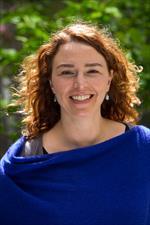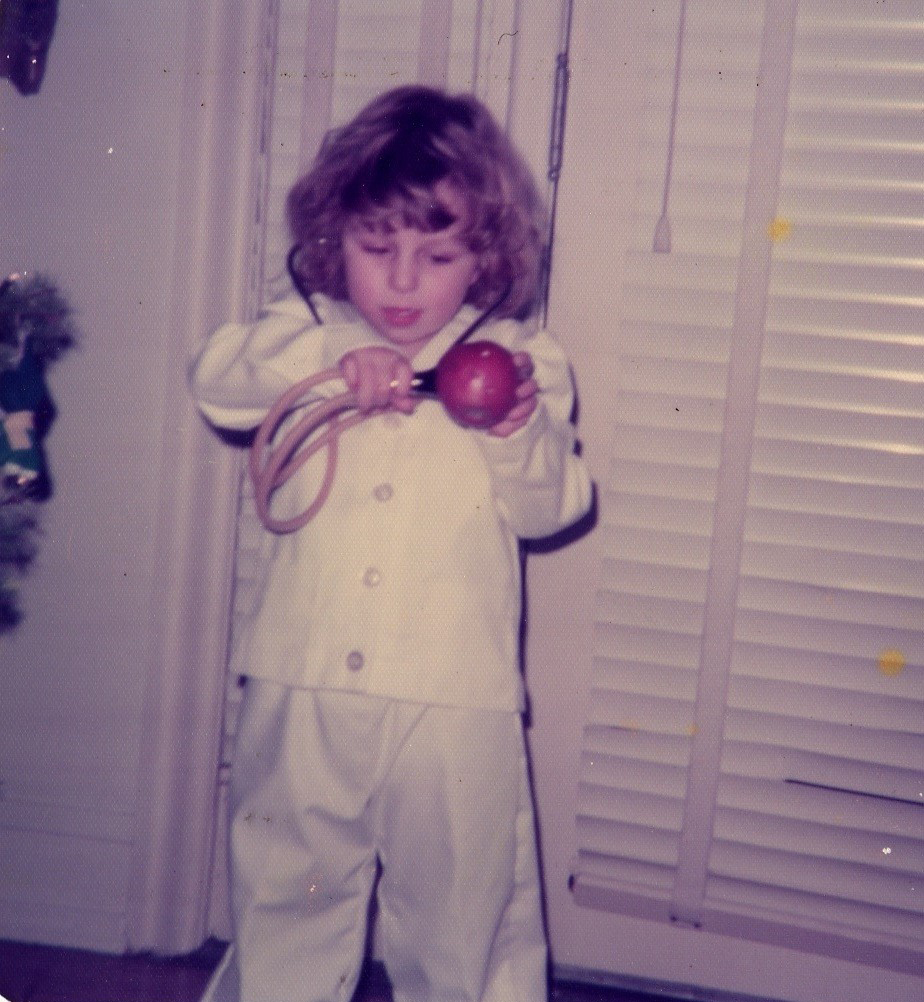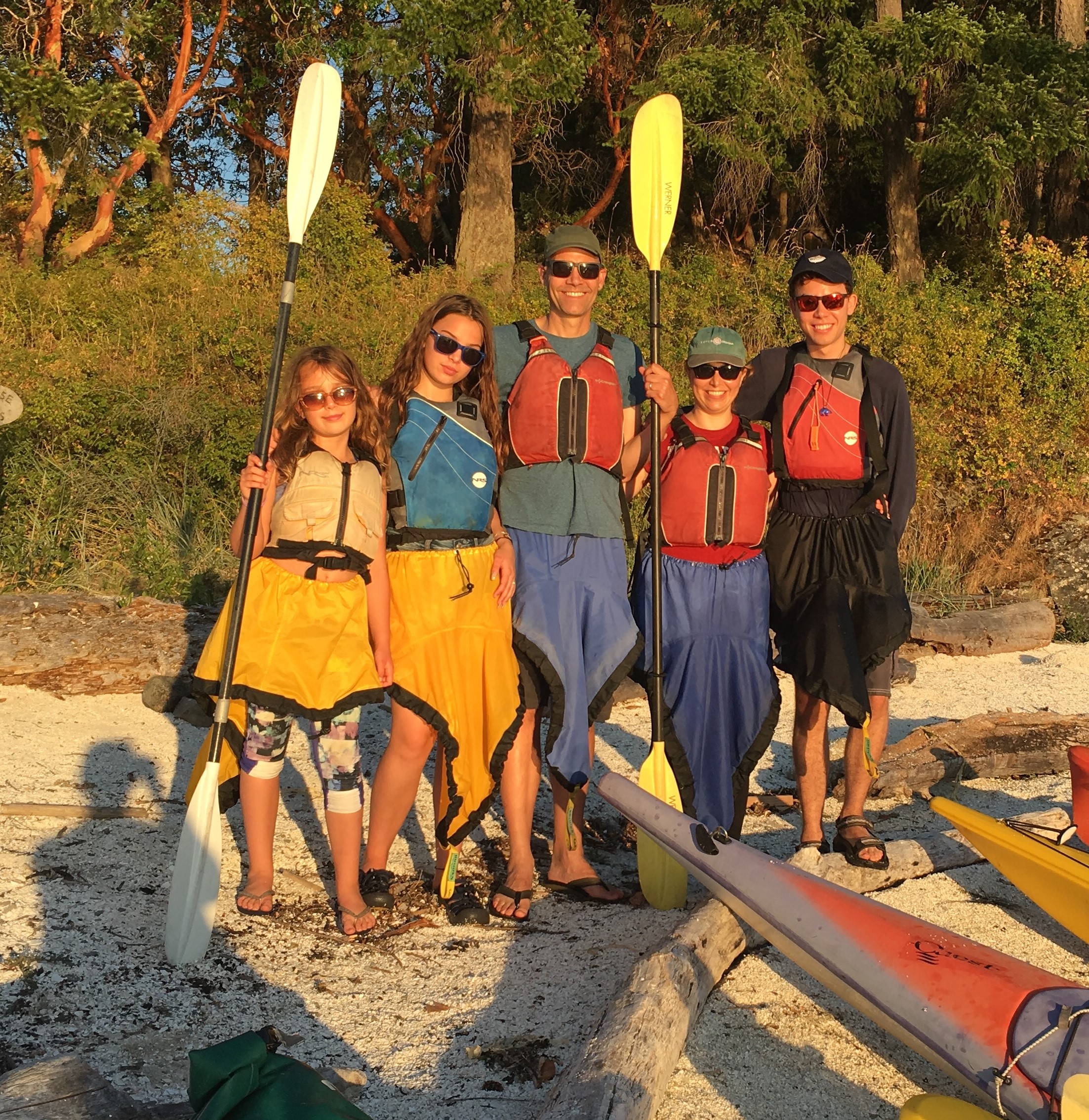Faculty Interview: Beth Harleman, MD
A Conversation with Beth Harleman, Associate Chair for Faculty Experience in the Dept. of Medicine

Where were you born and raised? Tell me about your parents and family.

I was born to a blue-collar family in Philadelphia. We moved to Nashville, Tennessee when I was little; that’s where I grew up and I consider it my hometown. My dad was a labor organizer in the days when unions were powerful and could make meaningful change for individuals and communities. My parents were fairly alternative, politically progressive people in the 70s and my dad was committed to improving peoples’ lives at the most basic level, in the workplace. My mom had a number of different jobs, many in healthcare and service industries. She was our economic solidity as dad’s union work was sometimes on a temporary basis and involved traveling for weeks at a time throughout the Southeastern United States. He helped organize communications and manufacturing workers to improve basic working conditions like having windows, rest breaks and not being locked into buildings. He often took me to union meetings and sometimes to the picket lines. My mom didn’t go to college but learned many skills working in a series of doctors’ offices and she is still that person that people want to visit with when they go to the doctor. I have one younger sister, who still lives in Nashville, and is a mom with three boys. Both parents are still active in their 70s and are “people people” in different ways, and both taught me that we are on this earth to help others in whatever way we are able.
What motivates you to so intensely pursue the academic and professional excellence you exemplify?
I’m fortunate that I’ve always been supported, cared for and protected from much of the economic suffering that our patients experience. Yet because of the way that I grew up and the life my parents exposed me to, I sometimes see myself in patients’ situations, like when they don’t have access to basics like healthcare. I also have a deep respect for the strength it takes to manage in the midst of hardship. At the heart of everything I do, what drives me is a sense of responsibility and joy in being with and taking care of patients – even negative interactions are a way of connecting and learning. I feel so lucky and privileged to be working here, to have this job, to have this title, to have this authority, and I never want to fall short of my expectation of doing my best for my patients. In terms of both medicine and education, I operate from my heart. For a long time, I thought there was a dichotomy between being kind and emotional and being smart, capable and rigorous. My husband, who is a teacher, introduced me to the concept in equity education of the “warm demander,” the idea that we can be all of those things, have high standards and push both ourselves and the people that we work with. Originally a strategy for elementary education, it is applicable to any realm. Our job is to convince the people that we work with of their brilliance, to take an interest in their lives, to care about them as individuals and to reinforce that we all must do the very best that we possibly can. That realization was incredibly energizing and now, when I push myself, it’s because it feels right to be here, to be who I am and to do my best for others.
Is there a common thread in the wisdom shared with you by mentors, past and present, which remains true?
The first person I identify as a mentor was my high school English teacher in Nashville. It was a controversial public academic magnet school: racially diverse and progressive, it drew kids from all over at a time when there was defacto racial segregation, and there was a huge amount of resistance to its opening. My English teacher took me under his wing at a difficult time, when my parents were divorcing, and asked me what I wanted to do with my life. I responded, “I just want to help make one person’s life better, just one – that would be enough.” Though he chided me at the time for not being more grandiose in my ambitions, he later reinforced the wisdom of that goal. Much later on, I remember speaking with Molly Cooke after I’d had two children and felt conflicted taking on additional professional and leadership roles. She said, “You just need to know what your North Star is and what really matters to you. As long as you hold onto that, you will make the right decision.” From these, and other mentors, the most consistent message that has resonated with me is that I can listen to myself and not be swayed by what other people expect.
Was there a catalyst or genesis in your concerns about issues of women’s health?
There is a strong connection between women’s health and advocacy and self-actualization, things that are important to me. I want to deliver great clinical care and I am also interested in the person and their life experiences, struggles and goals, and how I can help empower people to help themselves. It’s an intersection that goes back to when it was just me, my mom and sister, aware of being a woman in a working class environment and the challenges we faced.
Describe a difference between trainees now as opposed to when you were at that stage in your training.
The classic response might be that we worked many more hours and didn’t have as many restrictions on our time in the hospital. Today’s trainees are equally invested in their patients but they must wrestle with balancing duty hours restrictions and their compassion and connection to patient care. When I was training we often suppressed other aspects of our lives to adapt to our long hours, and I think our humanity suffered as a result. Trainees still work incredibly hard but they do a better job holding on to an awareness of their goals and lives, even if they can’t immediately fulfill them. They are more whole people, I think.
Would you be more likely to be on Chopped or Worst Cooks in America?
Chopped! I love to cook and it is one of my great pleasures. I feed a family with many eating preferences so I take it as a challenge to cook meals that everyone will like: my son is vegan, one daughter and my husband are vegetarian and the other daughter will eat anything. I make vegan pad thai and pizza, Indian dishes and food my 1970’s healthy mom would have made, and I love experimenting and modifying recipes from the New York Times.
Where was your last family getaway and what favorite memory do you cherish about it?

Last summer, we loaded the family into the van and had a family road trip to Salt Spring Island, near Vancouver, where close colleagues have a home. On the way, we rafted on the Rogue River in Oregon, saw friends in Portland, visited Olympic National Park in Northern Washington and took the ferry from the U.S. into Canada. The house is located on a peaceful, remote inlet. We woke up every morning to sun streaming through great big windows and reflecting off the water. It was so much fun – we went sea kayaking and saw lots of wildlife, sea lions and whales.
Thank you, Beth.